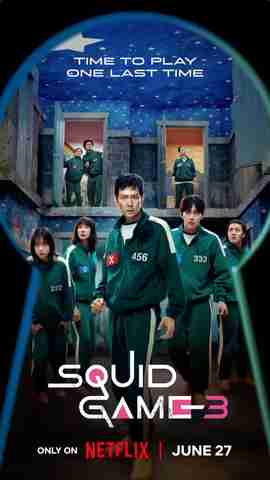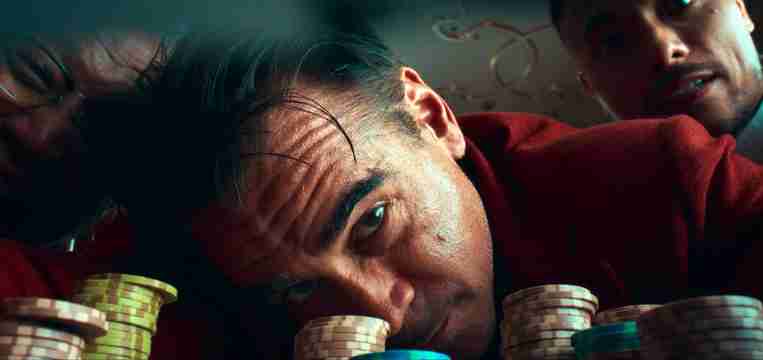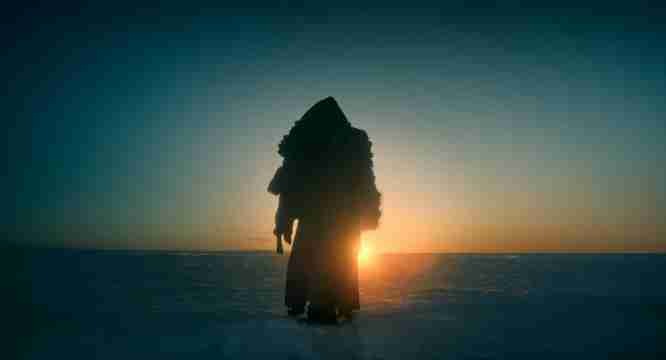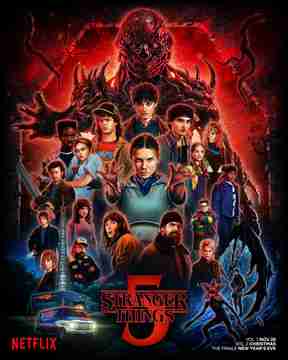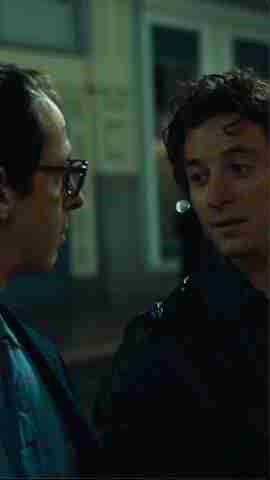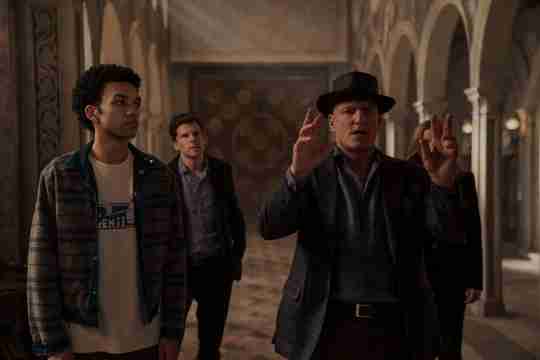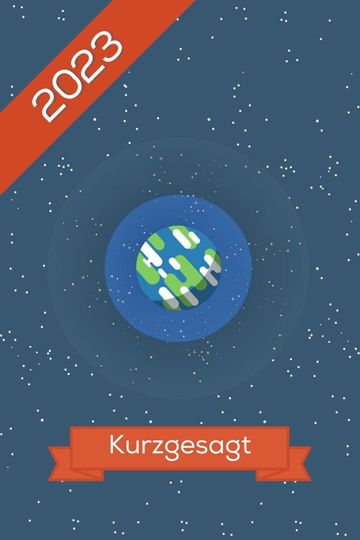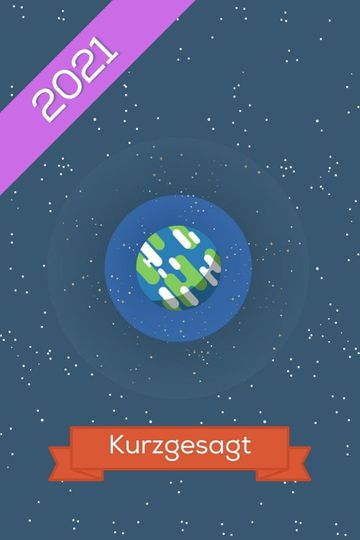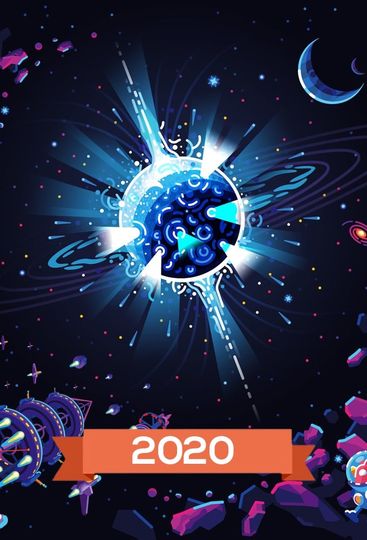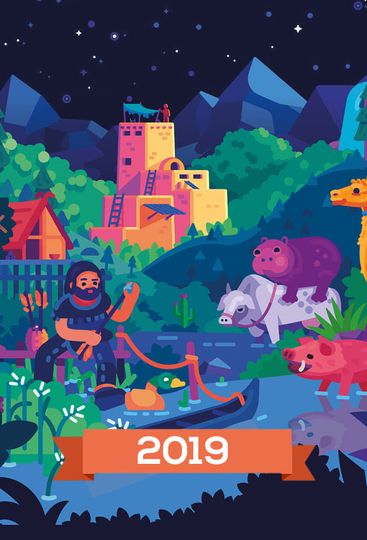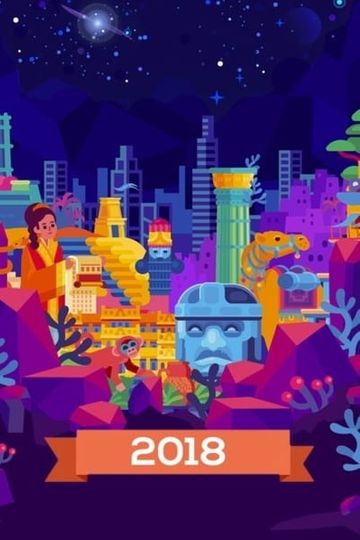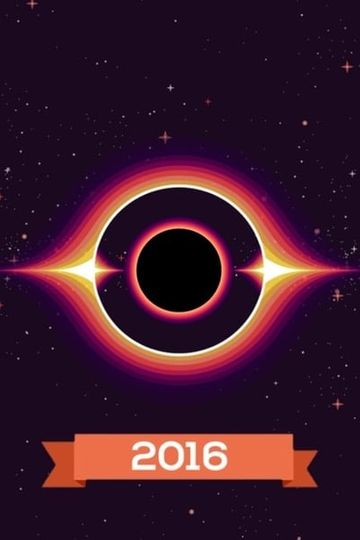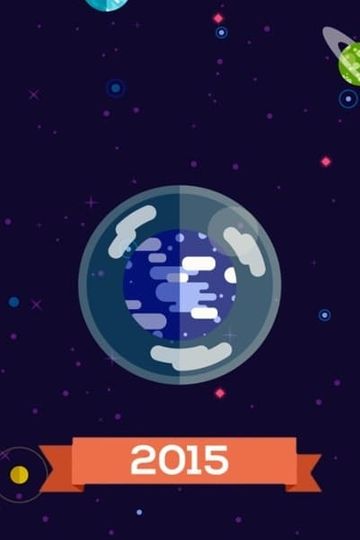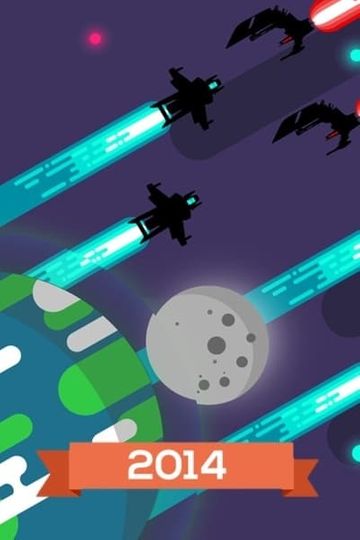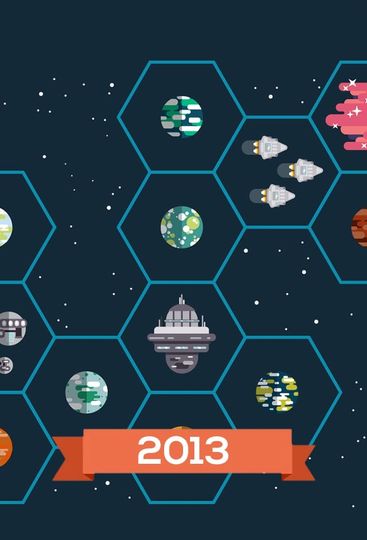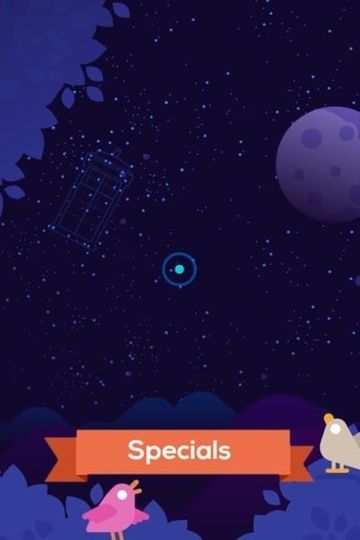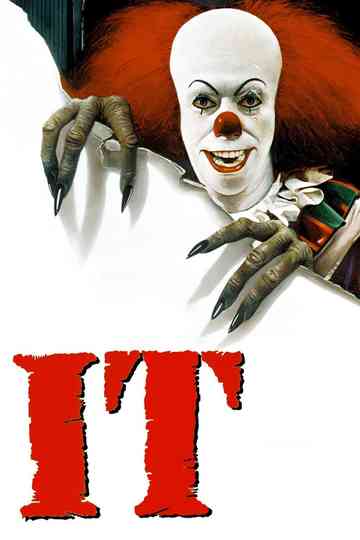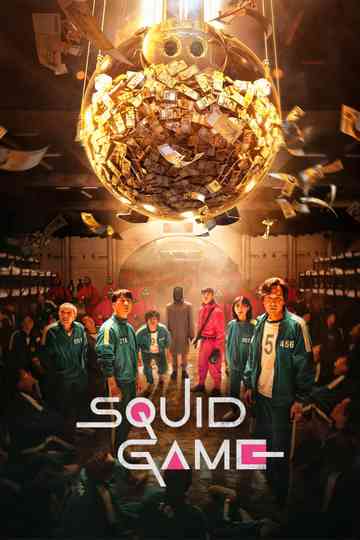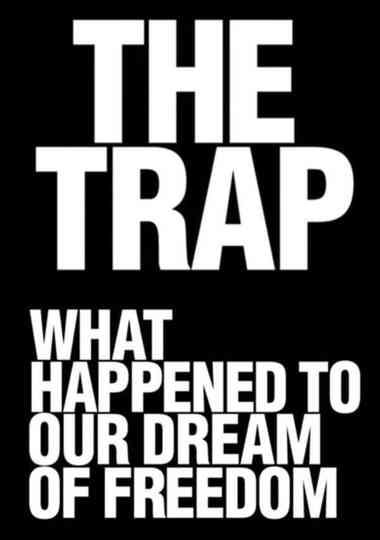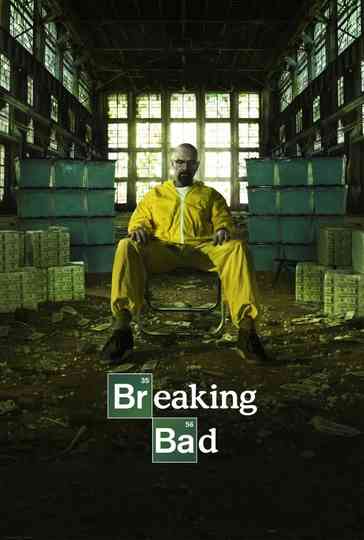2022 Episodes
1. What Happens if the Moon Crashes into Earth?
Today we are answering an age-old very scientific and important question: What if the moon crashes into earth? It’s more interesting and weird than you probably think. Let's start with the basics: Why isn't the Moon on its way to crash into us already?
2. Are There Lost Alien Civilizations in Our Past?
When we think about alien civilizations we tend to look into the vastness of space, to far away planets. But there is another incredibly vast dimension that we might be giving too little thought to: time. Could it be that over the last hundreds of millions of years, other civilizations existed on earth? Indigenous technological species that rose and died out? And that they or their artifacts are buried beneath our feet? What does science have to say about this and what are the implications for us?
3. We WILL Fix Climate Change!
Our home is burning. Rapid climate change is destabilizing our world. It seems our emissions will not fall quickly enough to avoid runaway warming and we may soon hit tipping points that will lead to the collapse of ecosystems and our civilization. While scientists, activists and much of the younger generation urge action, it appears most politicians are not committed to do anything meaningful while the fossil fuel industry still works actively against change. It seems humanity can’t overcome its greed and obsession with short term profit and personal gain to save itself. And so for many the future looks grim and hopeless. Young people feel particularly anxious and depressed. Instead of looking ahead to a lifetime of opportunity they wonder if they will even have a future or if they should bring kids into this world. It’s an age of doom and hopelessness and giving up seems the only sensible thing to do. But that’s not true. You are not doomed. Humanity is not doomed.
4. The Most Horrible Parasite: Brain Eating Amoeba
A war has been going on for billions of years that breeds well armed monsters who struggle with other monsters for survival. Having no particular interest in us, most of them are relatively harmless, as our immune systems deal with their weapons handily. But there are exceptions. Naegleria fowleri is an amoeba that not only has developed a deadly taste for human brains but is also a match for our defenses and a guest in dramatic headlines. What happens when this monster enters your body?
5. You Are Not Where You Think You Are
Look around you. Where are you? Where is this place you are occupying? Somewhere in a room, maybe in a city on a continent on a planet orbiting a star in a galaxy among billions. But… where is all of that? While this may feel like a daft question, it turns out that the concept of an absolute position is something humans made up. In a nutshell, the universe is a big bag of space that has things in it. If someone removed all these things, the stars and planets and black holes and dust, there would just be empty space left. In empty space, the concept of having a position loses all meaning. Empty space is uniform, the same everywhere.
6. Change Your Life - One Tiny Step at a Time
If you are like most people, there is a gap between the person you are and the person you wish to be. There are little things you think you should do and big things you ought to achieve.
7. The Last Human - A Glimpse Into The Far Future
The future of humanity seems insecure. Rapid climate change, political division, our greed and failings make it hard to look at our species with a lot of optimism and so many people think our end is in sight. But humans always thought they lived in the end times. Every generation assumes they’re important enough to witness the apocalypse and then life just goes on. This is a problem because it leads to short term thinking and prevents us from creating the best world for ourselves and our descendants. What makes this worse is that we actually may live at an extremely critical moment in human history. To understand why, let us look at the temporal window of humanity and ask: When will the last human be born and how many people will there ever be?
8. The Deadliest Virus on Earth
In the 1970s thousands of Chickenheads rained from the sky in Europe, making foxes and other wildlife confused and very happy. Why? They were filled with a vaccine to fight the deadliest virus known to humanity – since the 1930s a rabies epidemic had been sweeping across wildlife populations in Europe and humans wanted to finally get rid of the virus once and for all. Rabies is named after Lyssa, the ancient Greek spirit of mad rage, and has been haunting us for at least 4000 years. It can turn animals into angry beasts and humans into zombies that fear water. But what makes Lyssa fascinating is not just how bizarre and deadly its infection is, but also how incredibly good it is at avoiding our defenses.
9. Is Civilization on the Brink of Collapse?
At its height, the Roman Empire was home to about 30 % of the world’s population, and in many ways the pinnacle of human advancement. Rome became the first city in history to reach one million inhabitants and was a center of technological, legal, and economic progress. An empire impossible to topple, stable and rich and powerful. Until it wasn’t anymore. First slowly then suddenly, the most powerful civilization on earth collapsed. If this is how it has been over the ages, what about us today? Will we lose our industrial technology, and with that our greatest achievements, from one dollar pizza to smartphones or laser eye surgery? Will all this go away too?
10. Why You Are Lonely and How to Make Friends
Friends make life good. They provide the scaffolding that makes it not just bearable but fun. They give us a sense of meaning and purpose and are a source of security, self esteem and happiness. Almost nothing predicts how happy you will be as how connected you feel and a lack of social connection is associated with a number of diseases and a shorter life. But maybe you have scrolled through your phone, unsure who to call to go to a movie with, to celebrate with or ask for comfort. You may realize that you don’t have enough friends and feel lonely. And it is not just you. Disconnectedness and loneliness are widespread. Many people want more close friends but don’t know how to get them.
11. Let's Travel to The Most Extreme Place in The Universe
The universe is pretty big and very strange. Hundreds of billions of galaxies with sextillions of stars and planets and in the middle of it all there is earth, with you and us. But as enormous as the universe seems looking up, it seems to get even larger when you start looking down. You are towering over worlds within worlds, within worlds – each in plain sight and yet hidden from your experience. Let’s go on a journey – we’ll start in a park, about a thousand meters long, enough for a 15 minute walk. Every time we click a magic button, we’ll become a thousand times smaller. Ready? Let’s go.
12. What Happens if a Supervolcano Blows Up?
The Earth is a gigantic ball of semi-molten rock, with a heart of iron as hot as the surface of the Sun. Titanic amounts of heat left over from its birth and the radioactive decay of trillions of tons of radioactive elements find no escape but up. Currents of rock spanning thousands of kilometers carry this energy to the surface. Earth’s crust is the only thing in their way. It feels solid to us, but it is only a fragile barrier, an apple skin around a flaming behemoth. True apocalypses can break through and unleash eruptions tens of times more powerful than all of our nuclear weapons combined, subjecting the climate to centuries worth of change in a single year, while drowning continents in toxic ash and gases: supervolcanoes. How big can they get? And will they put an end to humanity?
13. Why Don't We Shoot Nuclear Waste Into Space?
Here in the Kurzgesagt labs we test very important ideas to see what happens when you blow things up or play with black holes. Many of you suggested that we look into an idea that sounds reasonable: Shooting nuclear waste into space. It is one of those concepts that seems like an easy fix for one of the main problems with nuclear energy. But it turns out this idea is not just bad but horribly bad and it gets worse the longer you think about it.
14. The Most Extreme Explosion in the Universe
Supernovae are the most powerful explosions in the universe, unleashing enough energy to outshine galaxies. We have no real metaphor for their power – if the sun were to magically go supernova it would feel like you were being hit by the energy of a nuclear explosion, every second. For weeks. While supernovae are the engines of creation, forging the elements that enable life, they also burn sterile whole regions of galaxies. So what would happen if one hit earth?
15. The Horror of the Slaver Ant
Everything changed when the slaver nation attacked. What used to be a thriving colony is now a captured country. Slaves do the work, serving their new masters until they die, only to be replaced by new victims harvested in brutal raids. But let us go back to the beginning…
16. How To Terraform Mars - WITH LASERS
Mars is a disappointing hellhole lacking practically everything we need to stay alive. It looks like we’ll only ever have small crews spend a miserable time hidden underground. Except, we could terraform it into a green new world. But to solve the planet’s problems, we first need to make it worse and turn it into oceans of lava with gigantic lasers.
17. Black Hole Star – The Star That Shouldn't Exist
Black hole stars may have been the largest stars to ever exist. They burned brighter than galaxies and were Larger than any star today or that could ever exist in the future. But besides their scale, what makes them special and weird is that deep inside, they were occupied by a cosmic parasite, an endlessly hungry black hole. How is that even possible?

